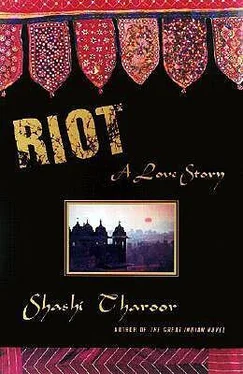“How can you love me?” he asked me suddenly. “When you know nothing about my background — my parents, my village, my ancestral home, where I went to school, what I grew up eating, thinking, listening to, dreaming of?”
“But that’s the whole point, Lucky,” I replied. “I don’t care about your background. I don’t care whether you lived in a thatched hut with no running water or grew up in a mansion. I don’t care if your parents drove a Mercedes or brushed their teeth with twigs. I love you. Not your family, not your village, not your caste, not your background. I love you. And that’s all that matters to me.”
He seemed taken aback by this, as if it was a new idea. “I love you too, Priscilla,” he said, but there was a note of uncertainty in his words I had not heard before….
Did I tell you he’s a poet? Even published a few poems in Indian magazines. “The standards aren’t very high,” he said apologetically, and you can see the rough edges in his work. I’m copying one below that he gave me. “A bit on the earnest side, as Wilde might have said,” he joked, “but then you know why it’s important to be earnest.” He comes up with these dreadful one-liners when he’s nervous, which I find really endearing. Anyway, it is earnest, but he means it, I think. Here it is:
Advice to the World’s Politicians
How to Sleep at Night
Try to think of nothing.
That’s the secret.
Try to think of nothing.
Do not think of work not done,
of promises unkept, calls to return,
or agendas you have failed to prepare for meetings
yet unheld.
Think of nothing.
Do not think of words said and unsaid,
of minor scandals and major investigations,
of humiliations endured, insults suffered,
or retorts that did not spring to mind
in time.
Think of nothing.
Do not think of your forgotten wife,
of lonely children and their reproachful demands,
or the smile of the pretty woman
whose handshake lingered just a shade too long
in your palm.
Think of nothing.
Do not think of newspaper headlines,
of the insistent transience of the shortwave radio,
or the seductive stridency of the TV microphones
thrust so thrillingly
into your face.
Think of nothing.
Do not think of the waif on the foreign sidewalk,
her large eyes open in supplication,
her ragged shift stained by dirt and dust,
stretching her despairing hand towards you
in hope.
No, do not think
of the woman at the building site,
wobbling pan of stones on her head,
walking numb for the thousandth time
from pile to site and site to pile
as her neglected baby scrabbles in the dust,
eats sand and wails,
unheard.
Think of nothing.
Do not think of the starving infant,
parched lips mute in hunger,
sitting slumped in the mud,
his eyes fading before his heart.
Do not think
of the stark ribs of skeletal cattle,
unable to provide milk, or hope,
in drought-dried lands of which
you know nothing.
Think of nothing.
Do not think
of the dead-eyed refugee, dispossessed
of everything he once called home.
Do not think
of the unsmiling girl whose once-sturdy thigh
now ends at the knee, the rest blown off
by a thoughtless mine on her way
to the well.
No, do not think
of the solitary tear, the broken limb,
the rubble-strewn home, the choking scream;
never think
of piled-up bodies, blazing flames,
shattered lives, or sundered souls.
Do not think of the triumph of the torturer,
the wails of the hungry,
the screams of the mutilated,
or the indifferent smirk
of the sleek.
Think of nothing.
Then you will be able
to sleep.
What do you think, Cindy? He’s genuinely earnest, discontented with the state of the world. He was telling me one day about this elite cadre he belongs to, the Indian Administrative Service, the IAS. We’ve got nothing like it Stateside. You won’t believe what it takes to get in: hundreds, thousands of young men and women studying sixteen hours a day so 150,000 of them can take an annual exam from which 400 are selected for all the top national government jobs that year — and maybe 25 of those for the IAS. Lucky says he had to wake up at 4:30 each morning to “cram,” to learn zillions of facts and figures about all sorts of things, not because you need to know them to do your job properly but just to prove you’re smart enough to do the job. To many guys, the exams are the be-all and end-all of their lives; getting through is a passport to power, privilege, clout, and lifetime job security.
Lucky had had hopes of becoming a writer, but he couldn’t afford to support himself on his writing, and his family put a lot of pressure on him to take the civil service exams. He says it seemed a noble aspiration to him: he did the exams because he wanted to make a difference. “Like Wilde, I’ve put my genius into my life and merely my talent into my writing,” he says. It’s odd to hear him constantly quoting Wilde, because you can’t imagine anyone less like an apostle of aesthetics. He’s not at all the stereotyped Victorian dandy with a lily in his hand and a book of verse in the other. He’s a bureaucrat, for Chrissake, a government official. And he’s an idealist about his work, as well as a traditionalist culturally and socially, the product of a middle-class professional Indian upbringing. The Oscar Wilde part of him is just in his intellect, I think, something from his education that hasn’t fully seeped into his life. And look at his life. He has a job with no room for the Wildean witticisms and quips he learned to enjoy at college. Maybe these allusions are a kind of refuge for him, giving him some distance from the daily realities he has to deal with. Maybe I’m another kind of refuge too?
I don’t know, Cindy But the guy’s an idealist, and there aren’t too many idealists around in the government. “I didn’t spend a year of my life sharing a tiny room with three other guys all swotting for the IAS in order to serve slum dwellers,” one of his batchmates (colleagues from the same entry year) told him at the training academy in Mussoorie. “I did it so I could be set for life, look after my parents in their old age, and get myself a good wife.” I’m not kidding, Cin; all these guys become instantly more desirable marital prospects the moment they pass the IAS exams. In many parts of India a government job is the ultimate accomplishment, and being in the IAS is the government job to end all government jobs. So fathers of eligible daughters double the dowries on offer when an IAS candidate heaves into view. Listen to one story: Lucky tells me a couple of his college friends fell in love and wanted to get married. Problem was, the girl was from a well-off Brahmin family, and the boy was a Naga from the Northeast, a Christian and a “tribal.” The girl’s father ranted and raved, made the poor girl’s life hell, and forbade any further contact between them. The guy then got into the IAS on the Scheduled Tribe quota, a kind of affirmative action program for India’s underprivileged, and suddenly the father’s objections melted away. They’re now married, and the same father who railed against an “accursed [expletive deleted!] tribal” now boasts of his “IAS son-in-law.”
But Lucky’s really conflicted about his work. On the one hand, he says, he can do good; as district magistrate he has real power here.
On the other hand, he says he’s frequently disillusioned with the cynicism he sees around him in government, especially the corruption. A lot of his colleagues are on the take — official salaries are modest, and the way they see it, since all their college classmates are busy making money as businessmen, engineers, whatever, why shouldn’t the smarter ones, the guys clever enough to get into the IAS, make money too? India’s so full of rules and regulations that government officials can make a fortune from the way they exercise their power to permit — the building of a factory here, the grant of a loan there. And then there’s the political interference, from the local legislator, the MLA, or from ministers higher up in the state capital, Lucknow. Some of it is for petty favors — hire this person, authorize this action, expedite that approval — and he does it as part of the way things are. But when the politicians ask him to favor a dubious contractor or promote an undeserving officer or improperly allocate government funds, he refuses, and then they make their displeasure clear, even start threatening to transfer him. That’s one good thing about his job: he can’t be fired, the worst they can do is transfer him if he won’t do their bidding. He doesn’t, of course, and so one day he may really get to be too much of a pain for the bigwigs in Lucknow and might find himself suddenly made Deputy Commissioner of Inland Waterways or whatever. I can’t bear the thought.
Читать дальше












